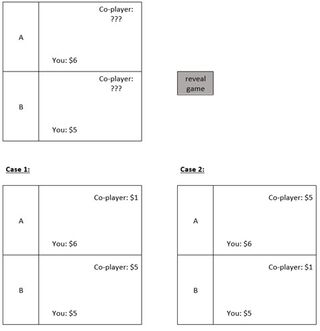Identity
Keeping Up Appearances and Willful Ignorance
Using ignorance as an excuse to protect one's self-image.
Posted February 22, 2022 Reviewed by Abigail Fagan
Key points
- Most people like to think of themselves as good people, but doing good is often costly.
- People can be tempted to engage in willful thinking to behave more selfishly without compromising their self-image.
- When given the opportunity, people tend to avoid information, either about the consequences of their action or what others expect of them.
- They then use their ignorance as an excuse to behave more selfishly.
Goodness is prevalent in most human societies. People donate to charities, prefer equitable outcomes over unequal ones, try their best not to disappoint others’ expectations, and avoid lies that hurt others.
Yet doing good often takes time and effort, and we may sometimes prefer to behave more selfishly. But because we do not want to appear selfish (either to ourselves or to others), we might be tempted to find an appropriate excuse or justification for our behaviour, so as to preserve our self-image.
Ignorance Is Bliss
In one well-known study (that has been replicated multiple times since), Yale's Jason Dana and colleagues found that when confronted with this situation, most participants engaged in ‘willful ignorance’: They avoided information about the consequences of their actions and use their ignorance as an excuse for their selfish behaviour. In the study, participants were asked to choose between two options that led to different monetary gains for themselves and another participant. Participants knew that their monetary interests and those of their co-player could be either aligned or in conflict (see the figure below). Some participants always knew exactly the consequences of their actions on their co-player’s earnings. For others, the consequences on the co-players’ earnings were hidden but could easily be revealed by clicking a button on the screen.

The authors found that when the consequences on the co-players’ earnings were known, 74% of participants chose the fair option B. In contrast, they found that when the co-players’ earnings were hidden, half of the participants chose not to see the consequences of their actions on their co-player’s earnings. More interestingly, all participants who avoided the information chose the selfish option A. In contrast, only 25% of the participants who revealed the consequences of their action chose that option. By remaining ignorant about the consequences of their actions, participants can clear themselves under the cover of plausible deniability.
Avoiding the Guilt
My co-author, Claire Rimbaud, and I investigated whether individuals would also engage in willful ignorance to avoid feeling guilty about letting someone’s expectations down. In our study, participants received a fixed amount of money and were asked to indicate how much they would like to give to a co-player depending on whether the co-player had to forgo a small or a large payment to play the game. Assuredly, a co-player who had to forgo a large payment to play the game would expect to receive more money from the game than a co-player who had to forgo a small payment. Participants could then acquire information about the actual amount of money their co-player had to forgo from two distinct information sources: One source never reveals that the co-player had to forgo a large amount, and the other source never reveals that the co-player had to forgo a small amount.
We found that about 60% of participants chose to acquire information from the source that never reveals that their co-player had to forgo a large amount of money to play the game, which enables them to be less generous vis-a-vis their co-player. By strategically avoiding information about their co-players’ expectations, participants used their ignorance as an excuse to behave selfishly while avoiding the guilt associated with doing so.
What Do We Learn From This?
Because doing good is costly, we might sometimes be tempted to make use of situational excuses to avoid this cost while keeping up appearances. For instance, individuals typically avoid information about the consequences of their actions to behave more selfishly or choose to remain ignorant about others’ expectations to avoid feeling guilty about letting them down.
Altogether, these findings highlight how information (or the lack of it) plays an important role in how we make pro-social decisions and how self-image is an important determinant of altruistic behavior.
References
Dana, J., Weber, R. A., & Kuang, J. X. (2007). Exploiting moral wiggle room: experiments demonstrating an illusory preference for fairness. Economic Theory, 33(1), 67-80.
Rimbaud, C., & Soldà, A. (2021). Avoiding the Cost of your Conscience: Belief Dependent Preferences and Information Acquisition.


